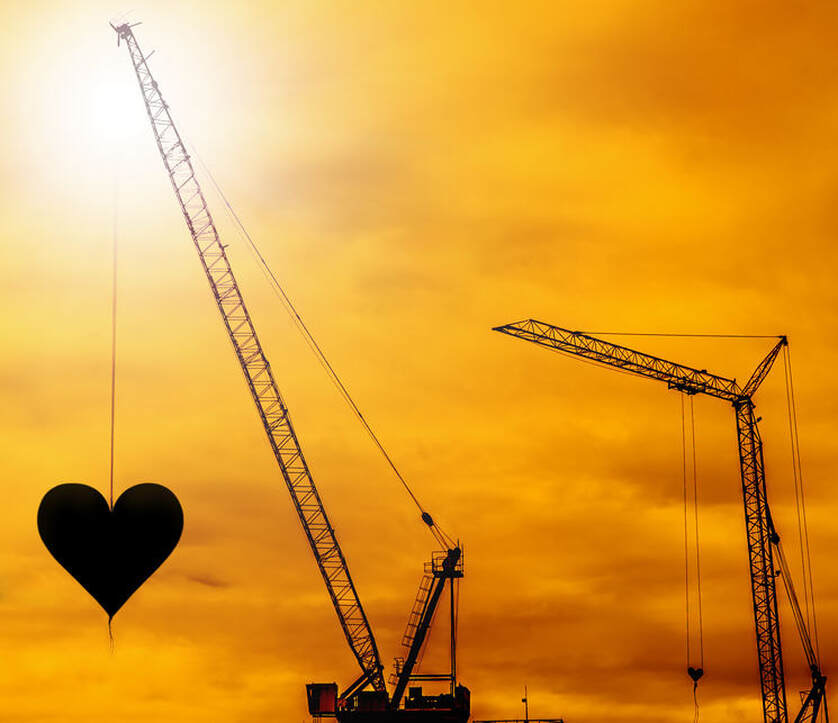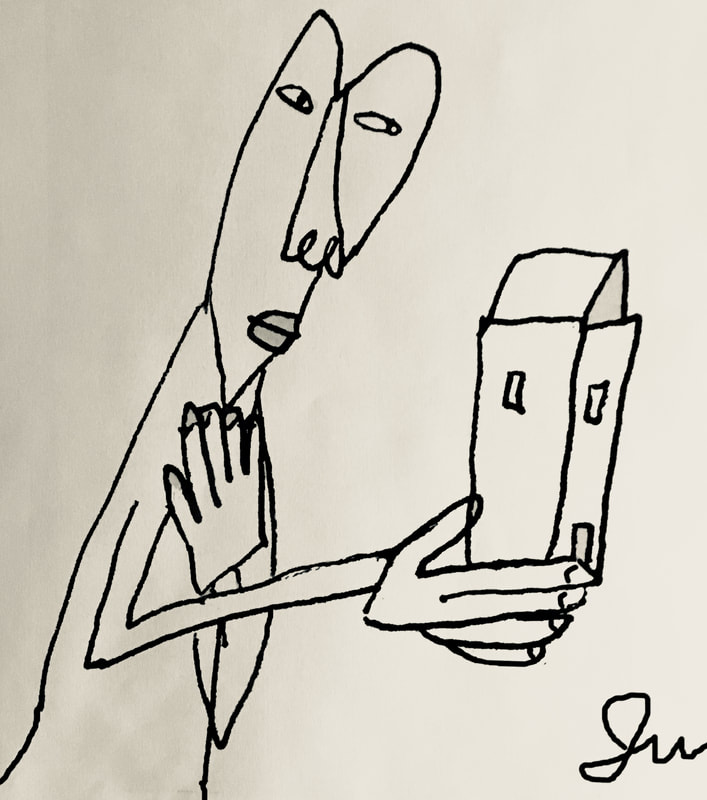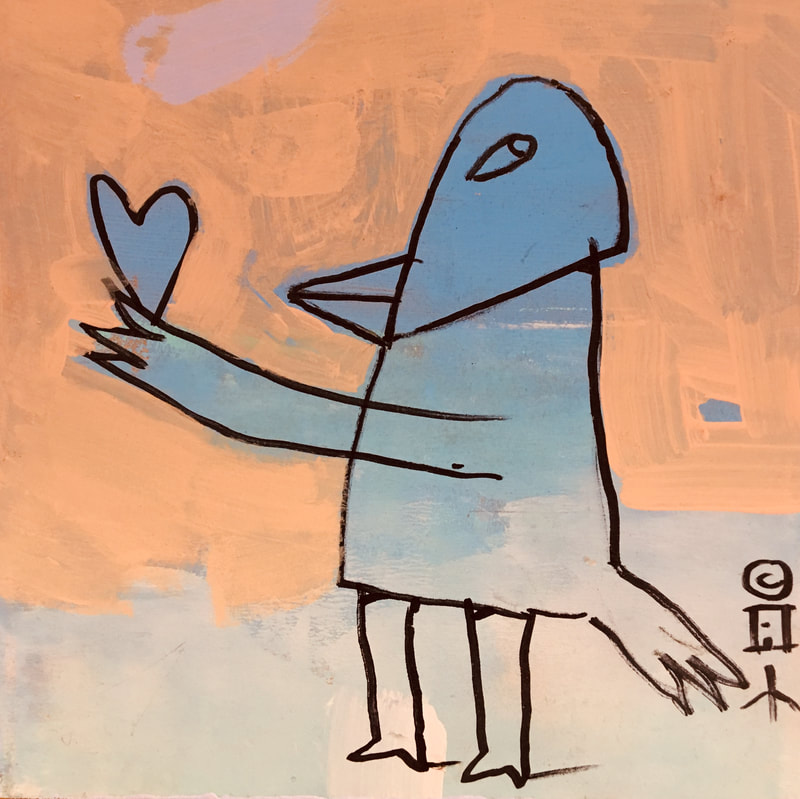|
Heart art from the incomparable (Ithaca local!) ALiCE MuHLBACK. (Alice made my logo!)
get free of 3 painful patterns in relating Attachment, frustration, rejection: 3 simple and super-recognizable relational patterns. It’s so helpful to see how they’re operative—because, simply put, they take us away from love. Note that we all have all three patterns, with one predominant. They work together: you have to be attached to something in order to be frustrated that it’s not in place and then reject what you don’t want. Note, too, that I correlate these 3 styles to Enneagram types at the very bottom of this post! This may seem more heady than my last deeply heart-based Love Overhaul post, but I promise there’s some gorgeous wow-juice in here. I’ve laid it out with simple clarity (not saying you’re slow or thick, oh, NOT-Molasses One; I know your life is full). And this may look long, but it has lots of skimmable bullet points. I’ve illustrated each pattern below with simple “I” sentences. Scan for the phrases that resonate (uh, and maybe feel cringey). I invite you to watch first for your own relational patterns, then later consider how you’ve been on the receiving end of those of others. As you read, remember there’s nothing to judge: this is just what we human beings do. We’re just trying to get our needs met because we don’t trust that’s always happening anyway. We don’t trust that life will show us how. We don’t trust that we’ll be okay if we don’t grab the reins from others (or use more subtle tactics to manage them). So read with compassion and kindness to yourself. Attachment What could I be attached to that would keep me from purer forms of love?
Frustration How do I cultivate or demonstrate frustration, thus staving off the purer forms of love?
Rejection How many ways could I feel or wield rejection to keep myself from purer forms of love?
PAUSE. Allow an integrating breath to go fully in and fully out. You can stop here and just notice and take in the ongoing story of attachment, frustration, and rejection in human (your) relating. Or read on (or come back later) to get more clarity on moving beyond them. Countering these relational patterns I’ll give you a bunch of helpful bullet points, then I’ll give you the big, most important thing, the one thing to focus on if nothing else. (Spoiler alert: It’s about presence. Boils down to NOW.)
About NOW as the key, once again Speaking of this moment, NOW can be understood as the great solution, the foil to the relational patterns, if you’re clear on the difference between relationship and relatedness. I learned this from Jessica Dibb and Russ Hudson, two brilliant teachers of the Enneagram. Relationship is about structures, agreements, and expectations. Relatedness is about active, dynamic, live, in-the-moment relating with another. You’re relating with who they are right now as who you are right now. Once again, now is your best friend. Now contains all you need in every realm of life, and certainly to express, experience, and act upon love. (It occurs to me all human relationships are love-based—even in our professional lives, even in quick exchanges with a cashier: we’re always emitting, receiving, exchanging love.) Actual relatedness requires being present right now to what’s actually happening, what’s being said, what’s being felt. I like to think of my progeny in terms of the current version of them. There have been so many versions over the years, so I get to keep falling in love with who they are now. We can apply this to anyone, and bring it to now: the beloved before you isn’t simply a current version as in this year’s version or this era’s; this is the current version right now, in this very moment. There has been and will be no other moment like it. We support one another’s becoming and our endless potential to transcend false identity by simply allowing one another to be as we are right now and drop in for that. Drop in with curiosity, awe, amazement, the sense of what a privilege it is to witness and partake of this moment, to participate in it fully, to discover someone you love all over again, to discover yourself again in the process. Does it get any better than that? I invite you to the freest love you have access to at any given moment. Breathing consciously into presence, you can witness and shift out of attachment, frustration, and rejection. If you’d like a simple, beautiful love credo (which got more responses than anything I’ve written perhaps ever), see my post Love Overhaul. If you're Enneagram-aware, note that the attachment types are 9, 3, and 6; the frustration types are 1, 4, and 7; the rejection types are 8, 2, and 5. (Still, we all have all three, whatever our core type!) Note that each of the 3 relating triads discussed here has a representative type from each center! (Example: For attachment, 9 is the body type, 3 is the heart type, 6 is the head type.) Baffled by the order I named the types for each of the 3 styles in the first sentence of the prior paragraph? I named them in the order of the 3 centers—body types first (891), then heart (234), then head (567). That's the flow of the Enneagram. Love and blessings, Jaya
0 Comments
 Join me, if you will, in a new vision of love. As you read this to try it on, you might put many faces & kinds of relationships to the word BELOVED. I invite you to stretch yourself in love, stretch your ideas around love, stretch into new behaviors in love. I invite you to a love overhaul--a grand experiment, if you will. My aim, which I may grope toward gracelessly & will only achieve imperfectly, is to love as purely as I’m able at any given moment. I love myself at least enough to let love be pure perfection in the imperfect ways I give and receive it as I evolve. I love others by appreciating and accepting the gorgeously imperfect love with which they grace me. I am willing to grapple with, to keep meeting, what challenges me in the realms of love. Toward the beloved, I seek to be in a state of ongoing discovery (awe, curiosity, joy!), instead of holding to all I’ve decided so far about who they are (and worse, letting that become an accruing list of here-we-go-again grievances). My love gets to allow their becoming, and to acknowledge the journey that they’re on beyond me and sometimes (I am wowed by this privilege daily) with or near me. I allow the journey of the beloved to follow its own timeline, not the one I would draw up—as if I had such drafting skills!—and not the one my impatience or discomfort would demand. When I require others to make me comfortable or to pander to my fears or to fix what’s unhealed inside me, I have stepped out of love. I accept this. I must and I will step out of love; others must and they will, too. It’s madness to expect anything else. I aim to witness with no judgment when either of us slips off-track—or to witness the judgment of self or other, and start there, soothe that first. I aim to simply call myself back to love. My ongoing intention is swift course-correction back to love. I am in love with this very intention! Maybe I don’t instantly feel love in such course-correcting moments. I know there’s no problem. Sometimes simply reversing the direction of my focus is all that’s needed to get me back to love (and eventually the feelings always follow): I shift the focus away from changing, correcting, instructing the beloved (even with the innocent motive to help them get me!) and bring the focus inward instead, toward soothing and perhaps better understanding myself. (The conversations with the other can follow, from a more grounded and kinder place.) If something in my interactions with the beloved pushes a button or rubs up against a raw, unhealed place inside me, I am not shocked or dismayed; I do not believe something has gone wrong. I do seek to soothe myself. I do deconstruct the old, wrong decisions I made about myself or about love or about the way life works. I will bring love to myself first. I will love the beloved so much that I will take care of myself first, so great is my clarity that my well-being is no one else’s job and that my purest love comes from a place of self-love, of wholeness within myself. (I also allow my self-love and wholeness to be works in progress, dynamic entities or energies that wax and wane.) I understand that it happens, in love connections of all kinds, in both directions, that buttons are pushed, core wounds are triggered, pain arises. It is not the job of love to prevent this. It is not a failure of love when this occurs. In fact, it’s the opposite at play: the job of love is to expose what needs to heal, so the hand of love will brush against every available bruise without meaning to, without trying. When it’s my button pushed or my pain prodded, I well know the tendency to make that about the wrongs of the other: what they do wrong, how they don’t show up for me, the maddening way they phrase it, the way they’ve done this before and have failed to hear what I said about the impact on me. I aim to make it about me instead, my greater self-understanding, my healing and evolution, my expansion into greater love. I aim to hear in my own mind and speech anything that resembles: Correct yourself faster for me, see what you can’t yet see because I insist that you see it for me, do the impossible to please me and make me feel loved, be who you are not—so I can relax. I know how to course-correct. I can come back to I release you to your life; I release myself to mine. I can and will come back to love, even if all that means at first is feeling the pain, soothing myself, loving the beloved for a moment from afar, as best I can, coming close again with nothing understood or just a fragment of wavering light to tender. I will sing with Iris Dement, Just because I’m hurting, that don’t mean that you’ve done something wrong. I am willing to apply that going in both directions. People hurt on planet Earth. People hurt in human relationships. Sometimes I hurt in mine; sometimes the beloved hurts in relationship to me. Still, I’m willing to love. I love myself so much that I’m willing to let the beloved be mad at me or disappointed in me --and I won't use that as an excuse to believe there’s something wrong with me. In those moments, I go after my pain to soothe it--I do not go after the beloved to see who they want me to be now. I go after love to embody it. I don't go after the beloved when I’m unclear with myself. I will not abandon myself. I will not think I’m bad or wrong when their pain is called forth, when their buttons have been pushed (as they must be; as they will be). I am willing to hear them talk when they’re ready and to listen carefully, to listen with love. This does not mean that I rush to fix their reactions—never mind seek to prevent them! I allow the beloved to be in their process. I invite them back to connection, to communication, and to love in right timing. I may get that timing wrong. I’m willing. I am willing to listen to the beloved and I am willing to look at myself, but I am not willing to automatically think that I’m wrong just because another thinks I am. I will always feel compassion when my phrasing or timing—or whatever—came in the wrong package for them and brought up their pain. I am sincerely sorry when my reactivity or wrong interpretation or personality tendencies got played out in a way that was hurtful to the beloved, and I want to make it right however I may be able to do so. But I will not grovel. I cannot be sorry that their stuff comes up with me: it must, it will, and I trust they’re equipped to meet it; I trust we’re both equipped to find love again together. I will not be sorry when my stuff comes up with them: it must, it will, and I trust I’m equipped to meet it; I trust we’re both equipped to find love again together. Love & blessings, Jaya "Sorry if …” and Other Sorry Apologies I’m not an advocate of perfection in human relationships, so the purpose of this writing is not to generate more perfect apologies. As a life coach, I often encounter people’s guilt, real or imagined, and I’ve come to have a deeper respect for the importance of forgiving ourselves: we hold ourselves back by holding onto guilt and, thus, holding onto stained, sorry perceptions of ourselves. Forgiveness is ultimately something to work out with ourselves. When we want someone else’s forgiveness, we really ultimately need our own, and must forgive ourselves whether others do or not. They may or may not forgive us; their forgiveness may or may not come quickly. We’re free when we forgive ourselves; we're free when we don't require their forgiveness to access our own. That said, in the name of keeping things clear with other human beings, it's a good thing to ask for their forgiveness on the way to self-forgiveness. It does help to know what constitutes a good apology in order to apply it as needed. Quite simply, a good apology is specific, direct, and brief, followed by a margin (perhaps a generous margin) of silence. This allows the recipient to take it in, release the sting of whatever went down, and grapple with their own inner tugging between forgiveness and unforgiveness. A sampling of unappealing, ineffective apologies follows. Sorry. Ay. Really? What for? Do you even know why the other feels so stung if that’s all you’ve got? Do you just want the tension to be over? This level of apology often garners a flimsy or false forgiveness. A good apology states clearly what you’re sorry for. Mea culpa, mea culpa, I’m sorry, I'm sorry, I'm so sorry, I'm still sorry. A good apology doesn’t grovel. This means it doesn’t need to keep repeating itself, as if you were more worthy of forgiveness if you’re sorry several times over or for a very long time. It also means you don’t need to call yourself names, overstate or inflate your crime, or make yourself small in any way. A good apology is clean and clear, and then it’s over. (That doesn't mean further listening to someone is out of the question! They may want to tell you more about your impact on them, and letting that in as you keep yourself grounded and stabilized by conscious breath can be a huge gift to another.) Sorry if … Sorry if I hurt your feelings, for example. Did you or didn’t you? Perhaps their feelings were hurt and you don’t feel responsible for that. Fair enough. In that case, express what you're truly sorry for. You might truthfully say something like, I’m sorry your feelings were hurt by what I said. I didn’t mean to say that in a hurtful way. If you find you want to tell more, ask permission: I’d like to clarify what I meant—May I? Sorry but … As soon as but comes in, you’re justifying or defending, and also diluting the force of the apology. Are you sorry? Just be sorry, with that brief, clear statement of what for. If you have more to say about why you did what you did, express that you’d like to explain something. Perhaps something feels fuzzy or unclear or messy or complicated that makes a simple apology feel false to you. It may well be worth a conversation but … the moment of apologizing may not be the time for that. Another thought is that the defending and explaining could happen with someone else—like a friend who won’t treat you like a victim, or a therapist. I’ve certainly helped clients work out their defensiveness so they don’t feel compelled to share it elsewhere, or can distill it down to a clear message to take to the other party involved. I pay close attention to my own defensiveness and seek neutral help if I need it. As soon as I hear a defense mounting in my mind, I'm motivated to clear it out, because I find defensiveness to be painful and demeaning. It’s nothing to judge: we’re all capable of defensiveness. It’s also not a good idea to let it dictate what you need to tell someone. Work it out between you and you and see if there’s anything left to tell. Sorry and … Just because you’re sorry doesn’t mean the other party needs to process with you all this brings up for you about your family of origin and that time you were falsely accused by the fourth-grade teacher who smelled like pepper spray. Gauge how much is said beyond a simple apology by the intention you have for this relationship and its level of intimacy. When you feel the need to apologize to someone not so close, like the customer-service worker you just chewed out because of the maddening robotic loops you got trapped in before she showed up to help, there’s not a lot more needed: she doesn’t need to get you or somehow come to an agreement with you about how understandable the whole episode was. You don’t need to land on the proverbial same page with everyone you apologize to. If the apology is directed to someone you’re close to and intend further closeness with, much more could be appropriate. Again, look for the right timing—this could involve simply asking--so that you don’t dilute your apology with an onslaught of related issues that the other may not be ready for until they’ve assimilated the apology and landed in forgiveness. You may need to get comfortable with your discomfort about how they perceive you, even as time passes while they’ve got gaps in the story of you. I'm sorry for my part. Whether you mean to convey such a thing or not, this reads like shorthand for, Yeah, I had a part, but so did you, and I'm saying sorry for mine, so now you’d better say sorry for yours. (Which I secretly believe to be worse than mine.) When 12-step programs and other excellent sources suggest that you apologize or make amends for your part, this means, step into what's yours and deal with just that. The idea is that you want to take full personal responsibility for what you do that feels off to you or violates your own ethics; and leave others alone to do that for themselves if they will. Apologizing for your part does not mean to do a global reckoning that breaks down all the parts and doles them out on balance scales so that you don’t land alone in the wrong. Apologizing for your part is meant to constitute a whole event, not a part. It’s not the Marco to their Polo. I once sat with a client who was at odds with herself in seeking to understand her part in a family feud. It was like looking through a blurry lens to get clarity. As she elaborated on her preoccupation with her part, it became clear to me that she was unconsciously operating out of some unexamined, almost cliche idea that it takes two to tango, so everyone has a part, and somehow the parts must be inherently equal. This all amounted to her seeking to beat herself into submission to own up to her part—and as long as that part didn’t look as big and ugly as theirs, she must not be done with the reckoning (or the self-flagellation). Sometimes it’s good to notice the model you’re in, notice it’s just a model, and step outside of it to look again from another angle. Instead of ferreting out her part, it turned out to be far more useful for her to determine what she was and wasn't okay with in what had gone down, and whether she wanted to change her boundaries with her family. Whatever she did or failed to do, what was ultimately needed had nothing to do with locating the right measures of blame or even delivering an apology. What if you’re tripped up on their part? Things in life just won’t neatly fall into black-and-white, sometimes, will they? You may on occasion find yourself knowing you need to apologize but feeling stuck with your own sting about what the other did in the same scenario. Perhaps as a non-realized human being, however conscious and well-meaning (I’m sure we’re in good company belonging to this club), you can simply be honest and say that you’re aware of where you need to apologize but can’t get past where you need their apology as badly as (or worse than) you need to give yours. This could mean one of those way-past-bedtime conversations, but sometimes it’s really true that (sing it with Elton) sorry seems to be the hardest word. Better to grope toward what needs to be said, murky as it may be, rather than speak a half-meant sorry while swallowing resentment down the wrong pipe. A slightly different scenario is when it’s hard to apologize to someone because they’ve done this exact thing to you or other not-so-similar things that weigh on you as you helplessly seek to form the apology that won’t take: this is a sure sign that you’re not current. Maybe you’ve been letting things slide that aren’t really okay with you, you’ve been avoiding hard conversations, you’ve been devaluing yourself or holding low expectations of how you get to be treated by others. See if you can locate what allowed this build-up for you and deal with it separately. Could be a long-term project, and well worth your time beyond this moment. Sorry because they made me. Did you have in your childhood the kind of caregivers or teachers who stood over you and demanded in their clueless-giant way, “Say you’re sorry!”? If you were trained to mumble an apology on demand that has nothing to do with your inner reality, it’s high time to retrain yourself into something else. There’s nothing gained from the apology that means nothing. I once heard Byron Katie talk about moving into each new moment with no trace left of what went before. This was during a program on making amends, so she was directly addressing the tendency to get stuck in guilt about past wrongs. What if we really lived that way? What if we gave our apologies appropriately when appropriate, made amends where possible (Katie uses the simple question, How can I make it right?), then truly let go of what we’d done so we could do the next thing, and perhaps do it better? When we’re small and marred by guilt, we really can’t step into our best selves or interface with others from that perspective. Outdated and unnecessary guilt puts a ceiling on how big we get to be. It limits the possibilities we see for ourselves. It causes weight and density in our minds, in random interactions, in entire relationships. It keeps us from realizing our potential or just plain being as light, free, and happy as it's possible to be. So how much do you believe in forgiveness? Do you live in a punitive Universe, or one that’s forgiving? Do you need to keep atoning if you don’t like something you’ve done? For how long? Could you be done with it before they are? Are you done yet? I love the model of moving from one moment into the next without a trace. I invite you to play with it. It could make things feel lighter and more current, which means you get to be present in the moment, showing up as your best self. What’s done is done. Now what’s possible? I want to close with the Forgiveness prayer (which I created based on some ideas from Marianne Williamson, elucidator of A Course in Miracles). This is recorded in the Notes on my Facebook page if you ever want to find it again. The obvious beauty of this prayer is that it doesn't require you to be ready to forgive—only ready to let the Universe bring in its endless supply of forgiveness, freely given to anyone under any circumstances. There's no issue of merit in the Universe's capacity to forgive. You deserve it, as anyone else does, just because you're here. This prayer can help you get to forgiveness when you're not there yet, and helps make it more tangible and complete when you are. (I offer it below toward the self, but you can equally use it for others.) I forgive myself. And where I can’t or don’t know how, Universe, you forgive me for me, and hold that while I catch up to it. I acknowledge that it is done. Somewhere beyond time and space, the forgiveness is complete. Love and blessings, Jaya |
Categories
All
|




 RSS Feed
RSS Feed